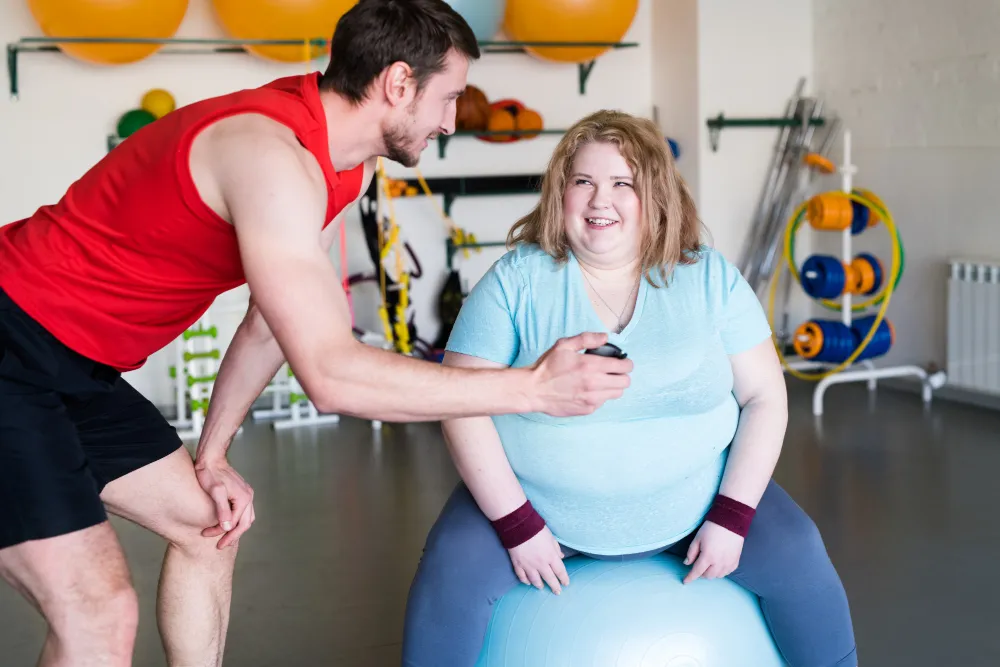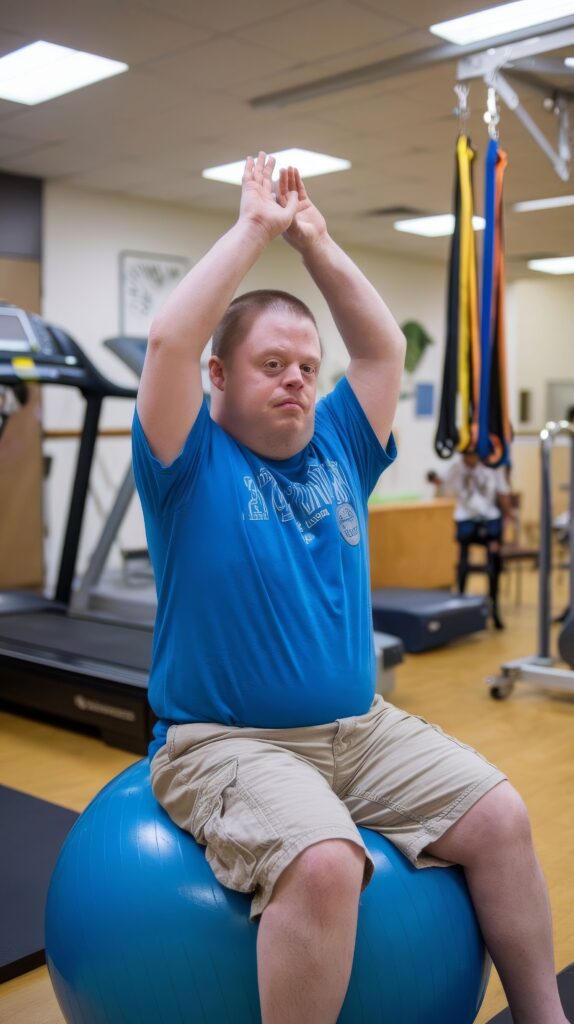
Describe your specific health challenges—whether you’re managing a chronic condition, recovering from an injury, or working on improving mobility and strength.
We’ll connect you with experienced NDIS-registered exercise physiologists in Melbourne who understand your needs and are available to support your journey.
Your exercise physiologist will reach out, assess your current condition, and create a tailored exercise plan designed to help you achieve your health and rehabilitation goals.

NDIS Exercise Physiology is a specialised support that uses clinically designed movement and exercise programs to help people with disability improve their physical function, health, and quality of life. It’s provided by Accredited Exercise Physiologists who are trained to work with complex health needs and tailor sessions to each individual.
For NDIS participants, this service can be a powerful tool to increase mobility, manage chronic conditions, reduce the risk of injury, and build confidence in everyday activities. Whether someone is looking to walk more independently, regain strength after an injury, or simply feel more in control of their body, exercise physiology offers a structured, goal-oriented pathway forward.
At its core, exercise physiology is about helping individuals live more active, empowered lives through evidence-based physical support that’s safe, effective, and truly personalised.

Every journey begins with a personalised assessment. An Accredited Exercise Physiologist takes the time to understand your health background, physical ability, and goals to shape the support that suits your needs.

Muscle strength and joint movement are essential for staying active and independent. Safe, structured exercises help increase movement confidence and reduce fatigue during daily routines.

Long-term conditions such as diabetes, arthritis, or heart disease require ongoing care. Physical activity guided by an Exercise Physiologist supports better health and symptom control.

Improved body control lowers the risk of falls and injury. Guided exercises target balance, leg stability, and reaction time to support safer movement at home and in the community.

Daily tasks like standing, walking short distances, or changing positions become easier with the right physical support. A clear focus on practical function helps maintain independence.

If you live with a condition such as cerebral palsy, multiple sclerosis, or brain injury, you can work on improving coordination, motor control, and physical independence.

Poor alignment and muscular tension often lead to discomfort. Exercise Physiology sessions address movement patterns that contribute to pain, while supporting better posture and comfort.

Reducing fall risk involves improving coordination, strength, and movement control. Exercise interventions are personalised to help build stability and safety throughout everyday life.


Success in exercise physiology means reaching your individual goals. Whether it's walking independently, building endurance for social activities, or increasing your ability to manage daily tasks, success is defined by the progress you make toward what matters most to you. Your goals shape the support you receive, making the journey truly personal.
Success is also about actively participating in your community. As you improve strength, coordination, and confidence, you’ll find yourself more able to engage in social events and outings. Exercise physiology enhances your independence, helping you lead the life you envision and participate fully in the activities that bring you joy.
Success goes beyond addressing current conditions—it’s about preventing future ones. By focusing on building strength, improving posture, and reducing strain, exercise physiology sets you up for long-term health, helping you maintain an active lifestyle and stay ahead of potential challenges.

An Exercise Physiologist helps you improve your physical function by tailoring exercises to meet your specific needs, whether it’s enhancing mobility, reducing pain, or building strength.
Exercise Physiology can improve your mood and overall mental well-being by reducing stress and boosting endorphins, which can help manage symptoms of anxiety or depression.
While personal trainers focus on general fitness goals, an exercise physiologist targets physical function through scientifically backed exercises designed to address specific health issues, injuries, or mobility challenges. The goal is to improve long-term health and independence, not just fitness.
Not at all. Exercise Physiology is suitable for people at all fitness levels. Whether you’re just starting out or looking to improve after an injury, the exercises will be adapted to suit your current ability.
It depends on your personal goals, but generally, regular sessions are recommended to maintain progress. Many people find that weekly or bi-weekly sessions help them stay on track and motivated.
Exercise Physiology can be included in your NDIS plan under the Capacity Building category, helping you work towards greater independence and physical function.
Unlike physiotherapy, which primarily addresses injury recovery, Exercise Physiology focuses on long-term physical function, enhancing strength, coordination, and mobility for everyday activities.
Exercise Physiology can be incredibly helpful for improving mobility. Through tailored, gentle exercises, you can gradually increase movement and functionality, even with limited mobility.
Not necessarily. Many Exercise Physiologists can work with you at home, depending on your preferences and goals. Some may suggest a gym or clinical environment, but the approach is always based on what suits you best.
Your funding depends on the goals outlined in your NDIS plan. Regular reviews will ensure your funding stays in line with the support you need. Discuss your ongoing needs with your plan manager or support coordinator.
Exercise Physiology complements other therapies such as physiotherapy, occupational therapy, or speech therapy. It’s designed to enhance your overall well-being and help you meet your personal goals.
The time commitment varies depending on your plan, but the goal is to make sure the exercises fit into your lifestyle. Whether it’s a few short sessions a week or longer, it’s all about consistency over time.
Speak with your NDIS planner or support coordinator to discuss adding Exercise Physiology to your plan. Once it’s included, you can choose a provider and start working towards your goals with tailored support.